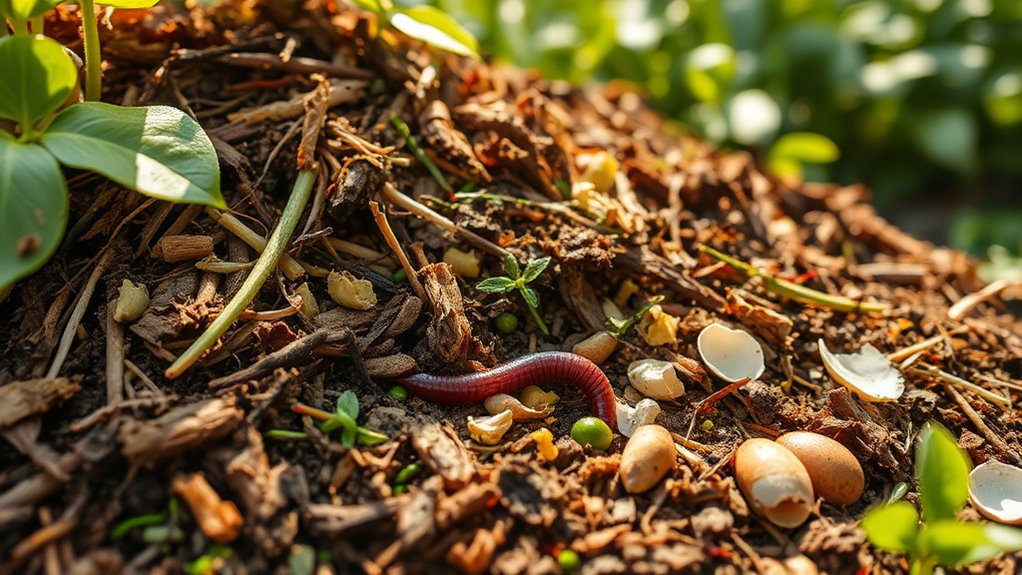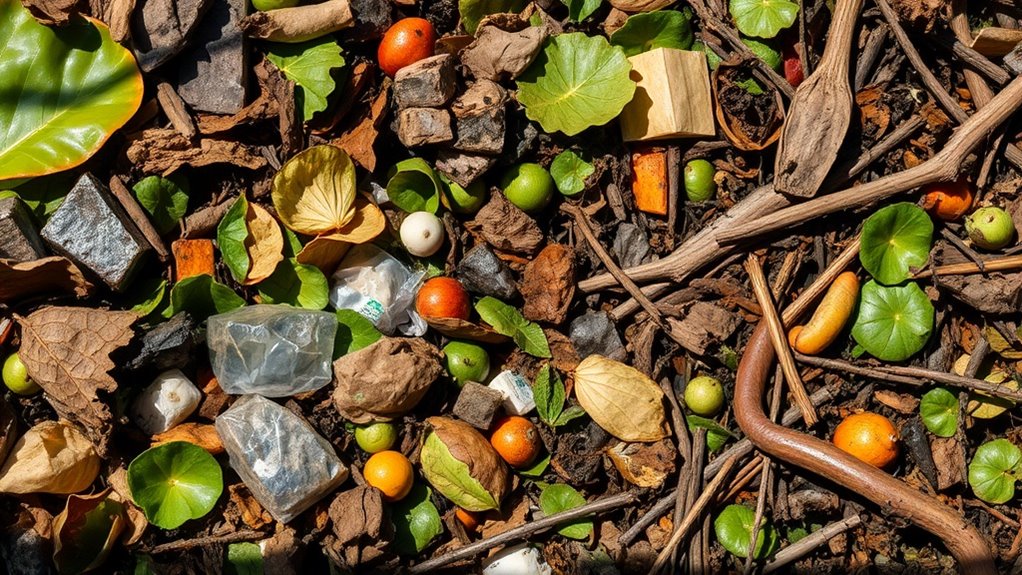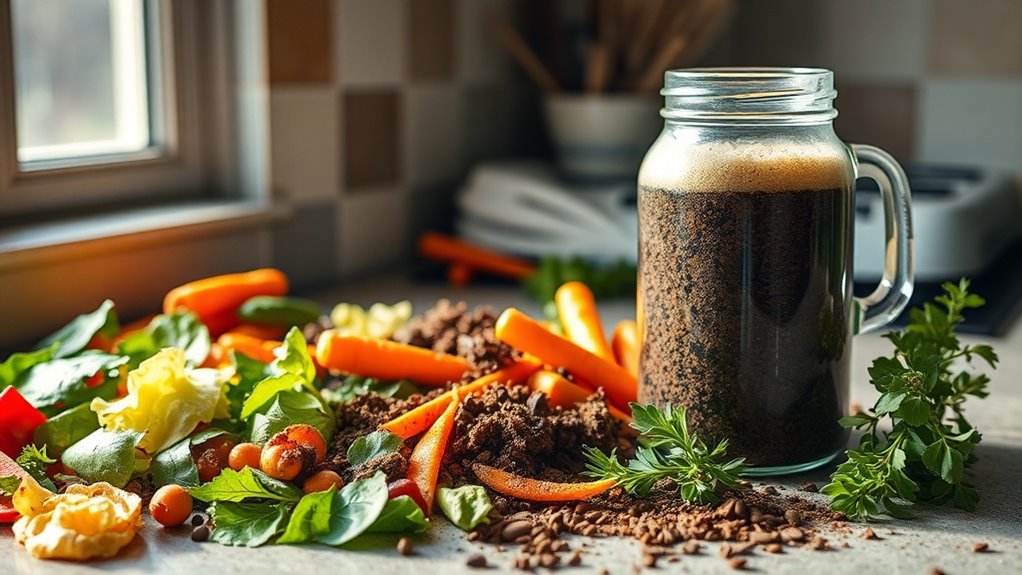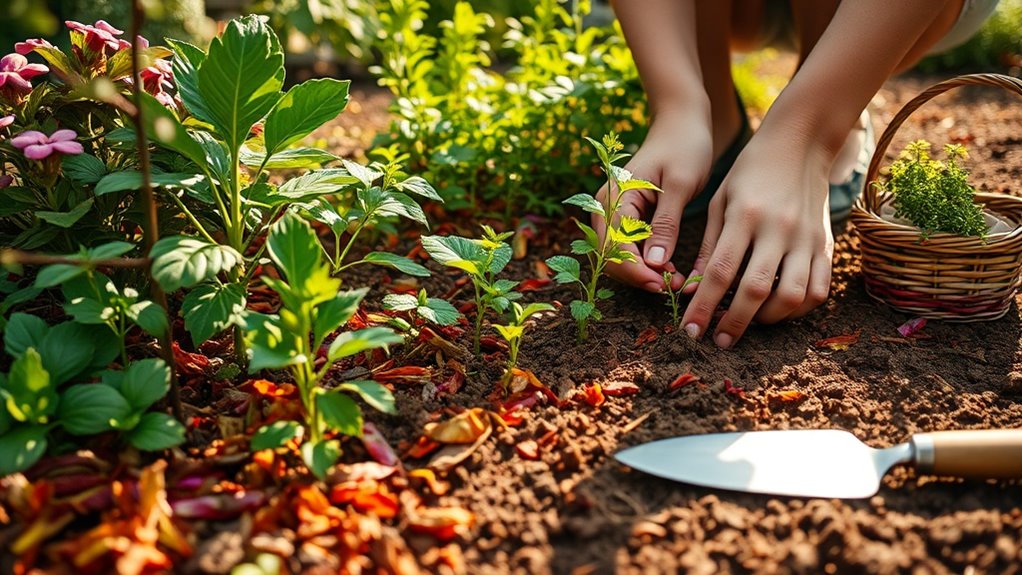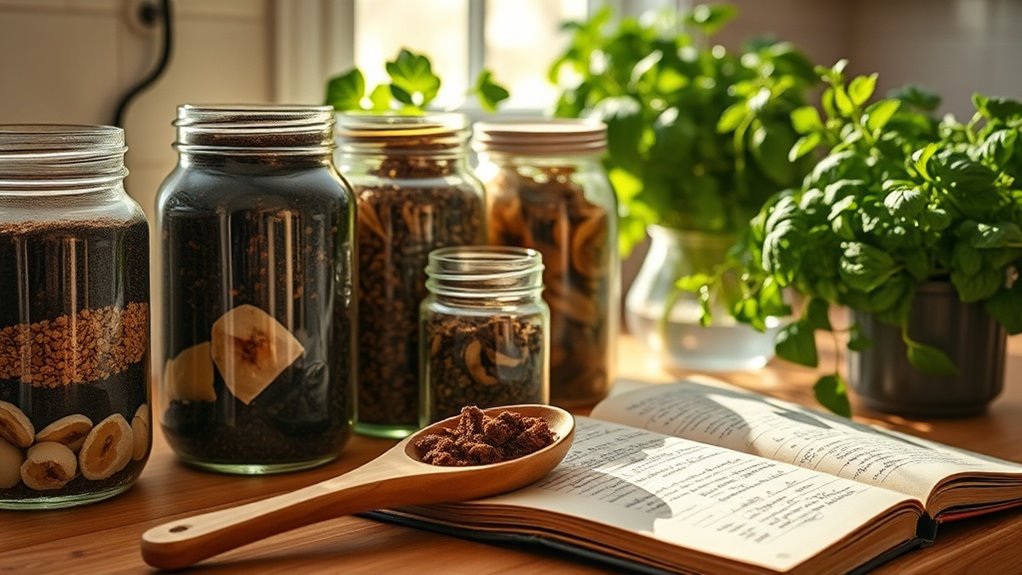The Only Composting Tip That Actually Made a Difference
If you’ve struggled with composting, you’re not alone. Many people overlook a crucial aspect that can significantly impact your success. By paying attention to the carbon-to-nitrogen ratio, you can transform your compost pile into a thriving ecosystem. This simple adjustment not only accelerates decomposition but also makes managing odors easier. Want to learn how to create a healthy compost environment? Let’s explore the key steps you can take for remarkable results.
Understanding the Basics of Composting
Composting is an easy way to turn kitchen scraps and yard waste into rich, nutrient-dense soil. Once you grasp the basics, it can feel like an effortless addition to your gardening routine.
The best composting tip is to mix browns and greens effectively, ensuring a balanced composition. This not only helps speed up decomposition but also enriches your soil, making it healthier for plants. Fast composting techniques can help you achieve nutrient-rich compost in just two weeks.
The Importance of Carbon-to-Nitrogen Ratio
Achieving a healthy compost pile hinges on understanding the carbon-to-nitrogen (C:N) ratio. This balance is crucial; carbon fuels microorganisms, while nitrogen boosts their growth.
Aim for a 30:1 ratio for optimal results. If you incorporate too much carbon, decomposition slows down. Conversely, too much nitrogen can create a smelly pile.
Correctly managing this ratio makes all the difference in effective composting! Additionally, using brown and green materials in the right proportions aids in maintaining this vital balance.
Choosing the Right Materials for Composting
When you start your compost pile, choosing the right materials can make all the difference in how quickly and effectively decomposition happens.
Focus on balancing your materials:
- Nitrogen-rich greens: vegetable scraps, coffee grounds
- Carbon-rich browns: dried leaves, cardboard
- Moisture: avoid overly dry materials
- Avoid meat and dairy: these attract pests
Additionally, incorporating common household items such as eggshells and paper towels can enrich your compost and utilize waste effectively.
Get these right, and you’ll see fantastic results!
The Role of Microorganisms in Composting
While you may focus on the materials you add to your compost pile, it’s the microorganisms that truly work behind the scenes to break them down.
These tiny powerhouses, like bacteria and fungi, decompose organic matter, returning vital nutrients to the soil.
Embracing their role not only accelerates composting but also enriches your garden, ensuring healthier plants and a thriving ecosystem. Additionally, creating a compact compost bin can facilitate easy access for microorganisms to your organic materials, enhancing the decomposition process.
Maintaining Optimal Conditions for Effective Composting
Microorganisms thrive in specific conditions, and by maintaining an optimal environment in your compost pile, you can enhance their efficiency.
Here are four key factors to focus on:
-
Moisture: Keep your pile damp but not soaked.
-
Airflow: Turn your compost regularly to introduce oxygen.
-
Temperature: Aim for 130-160°F for best results.
-
Balance: Mix green and brown materials for nutrients.
Additionally, ensuring that your compost pile is odor-free is essential for maintaining a pleasant composting experience.
Benefits of Using High-Quality Compost in Gardening
Using high-quality compost can significantly transform your garden, as it enriches the soil with essential nutrients and improves its structure.
When you incorporate quality compost, you boost water retention and encourage beneficial microorganisms.
This results in healthier plants, bountiful yields, and vibrant blooms.
Plus, high-quality compost reduces reliance on chemical fertilizers, making your gardening more sustainable and eco-friendly.
Additionally, you can enhance your compost by adding homemade fertilizer from kitchen scraps, which can provide an extra nutrient boost for your plants.
Embrace the change today!

